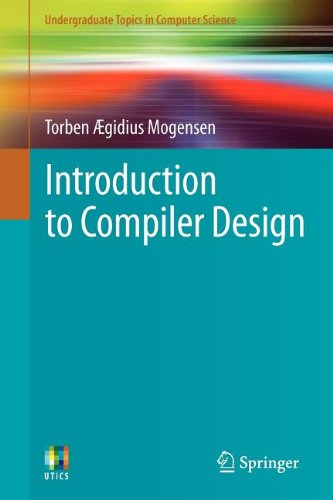

Most ebook files are in PDF format, so you can easily read them using various software such as Foxit Reader or directly on the Google Chrome browser.
Some ebook files are released by publishers in other formats such as .awz, .mobi, .epub, .fb2, etc. You may need to install specific software to read these formats on mobile/PC, such as Calibre.
Please read the tutorial at this link: https://ebookbell.com/faq
We offer FREE conversion to the popular formats you request; however, this may take some time. Therefore, right after payment, please email us, and we will try to provide the service as quickly as possible.
For some exceptional file formats or broken links (if any), please refrain from opening any disputes. Instead, email us first, and we will try to assist within a maximum of 6 hours.
EbookBell Team

4.3
48 reviewsThis textbook is intended for an introductory course on Compiler Design, suitable for use in an undergraduate programme in computer science or related fields.
Introduction to Compiler Design presents techniques for making realistic, though non-optimizing compilers for simple programming languages using methods that are close to those used in "real" compilers, albeit slightly simplified in places for presentation purposes. All phases required for translating a high-level language to machine language is covered, including lexing, parsing, intermediate-code generation, machine-code generation and register allocation. Interpretation is covered briefly.
Aiming to be neutral with respect to implementation languages, algorithms are presented in pseudo-code rather than in any specific programming language, and suggestions for implementation in several different language flavors are in many cases given. The techniques are illustrated with examples and exercises.
The author has taught Compiler Design at the University of Copenhagen for over a decade, and the book is based on material used in the undergraduate Compiler Design course there.
Additional material for use with this book, including solutions to
selected exercises, is available at http://www.diku.dk/~torbenm/ICD